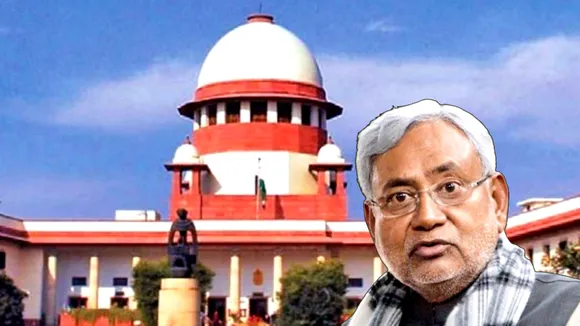Guwahati, the capital city of Assam, witnessed the imposition of prohibitory orders under Section 144 of the Code of Criminal Procedure (CrPC) on Sunday. These orders were implemented as a precautionary measure ahead of the scheduled visit of Union Home Minister Amit Shah to the city. The decision to impose these orders was made due to concerns regarding certain individuals or groups who may disrupt the normal functioning of offices, impede public movement, and create traffic disturbances in the coming days.
Police Commissioner Diganta Barah shared a notification indicating that specific persons or groups are anticipated to engage in agitation or demonstrations within the city. Such activities have the potential to disrupt the peace and public order of Guwahati. In order to maintain law and order, the imposition of Section 144 was deemed necessary by the authorities.
Section 144 of the CrPC grants the district magistrate, sub-divisional magistrate, or any other executive magistrate the power to issue orders to prohibit the assembly of four or more people in an area. This preventive measure aims to prevent any untoward incidents and safeguard the interests of the public.
The decision to impose Section 144 ahead of Amit Shah’s visit underscores the significance attached to the Home Minister’s presence and the need to ensure his security. The authorities are taking proactive steps to neutralize any potential threats and maintain a peaceful environment during the visit.
The notification issued by the Police Commissioner reflects the concerns regarding disruption to the normal functioning of offices and obstruction of public movement. These issues, if left unaddressed, can have significant implications for the city’s functioning and inconvenience the general public.
While it is essential to respect the right to peaceful protest and freedom of expression, the imposition of prohibitory orders emphasizes the need to balance these rights with public safety and security. The authorities have a responsibility to prevent any activities that may lead to a breach of peace and public order.
Guwahati, being a bustling city and a hub of economic and social activities, relies on the smooth functioning of its offices and the seamless movement of people and traffic. Any disturbance or obstruction can have far-reaching consequences for the daily lives of its residents.
The imposition of Section 144 and the heightened security measures signify the importance of ensuring a safe and secure environment for the Home Minister’s visit. It demonstrates the commitment of the local administration and law enforcement agencies to uphold law and order and protect the well-being of the public.
As the visit of Amit Shah draws near, it is expected that the security arrangements will be further strengthened. The authorities are likely to adopt a multi-layered approach, combining intelligence gathering, strict enforcement of prohibitory orders, and the deployment of additional personnel to maintain vigilance.
While the prohibitory orders may cause some inconvenience to the public, it is crucial to recognize their temporary nature and the larger objective of preserving peace and order during high-profile visits. The measures taken are aimed at safeguarding the interests of all stakeholders involved and ensuring a successful and incident-free visit by the Union Home Minister.
The imposition of prohibitory orders under Section 144 in Guwahati reflects the authorities’ commitment to maintaining law and order during the visit of Union Home Minister Amit Shah. The concerns regarding potential disruptions and the need to protect public safety have prompted these security measures. By striking a balance between the right to protest and the maintenance of public order, the authorities aim to ensure a peaceful environment for the city’s residents and the visiting dignitary.




